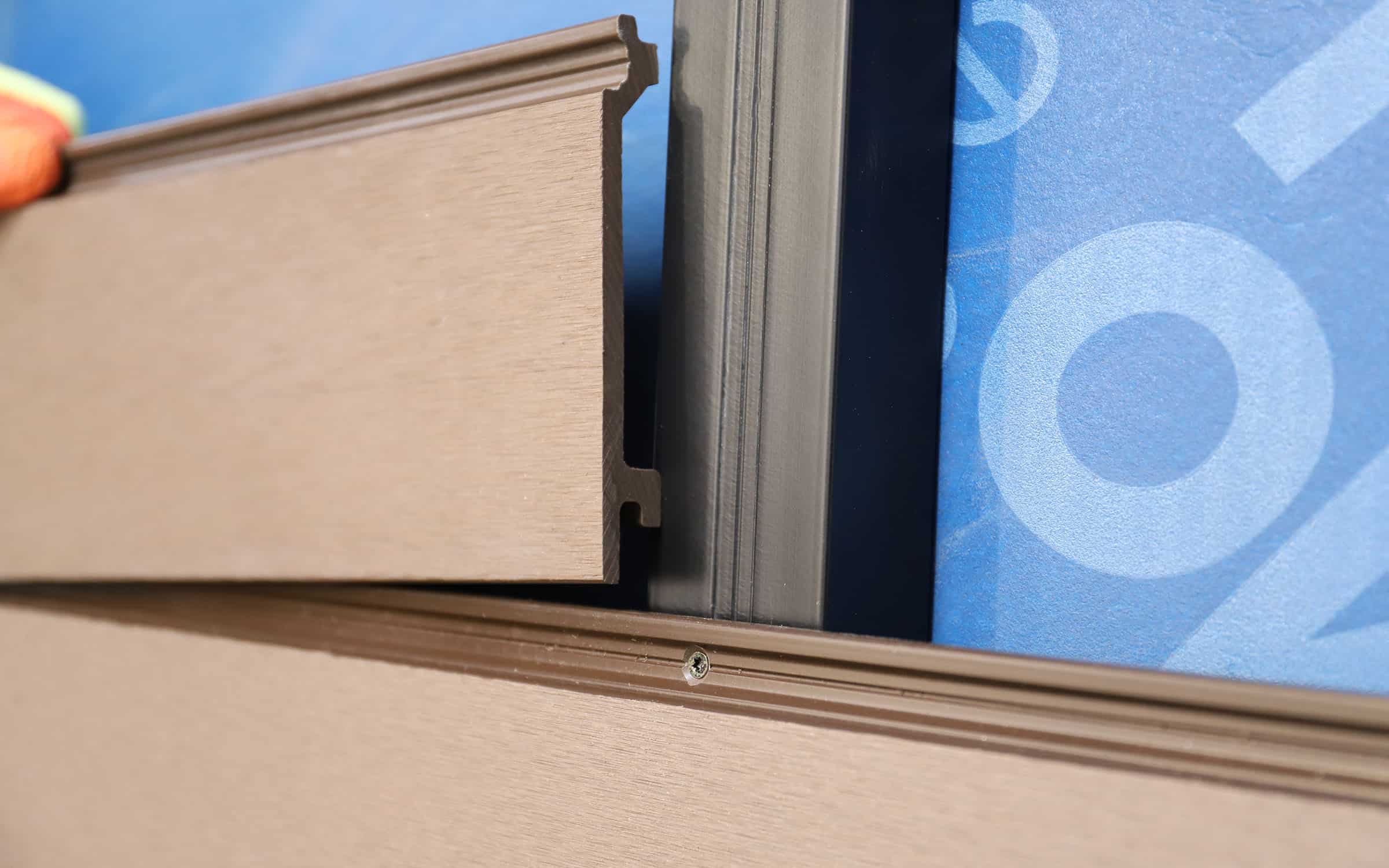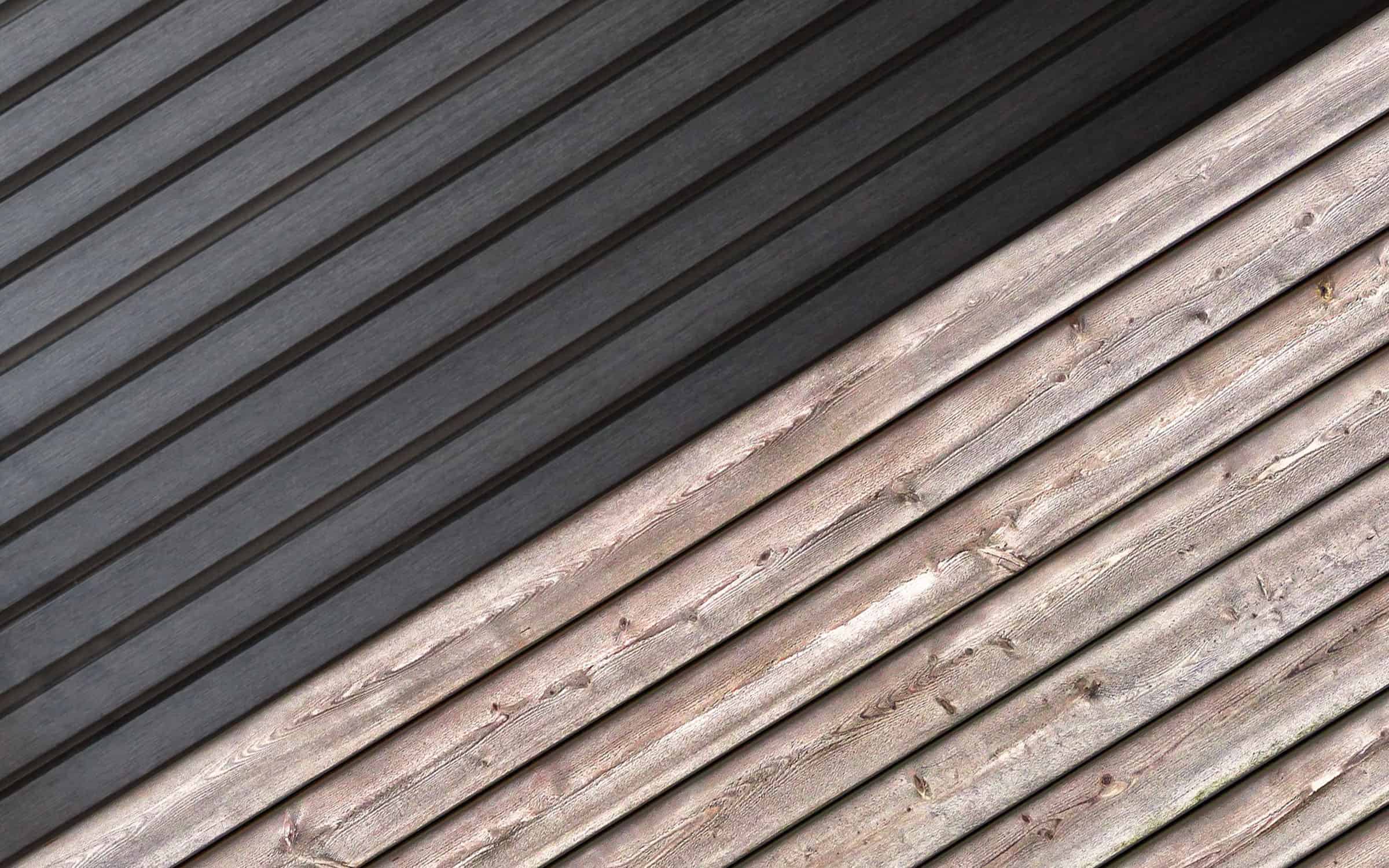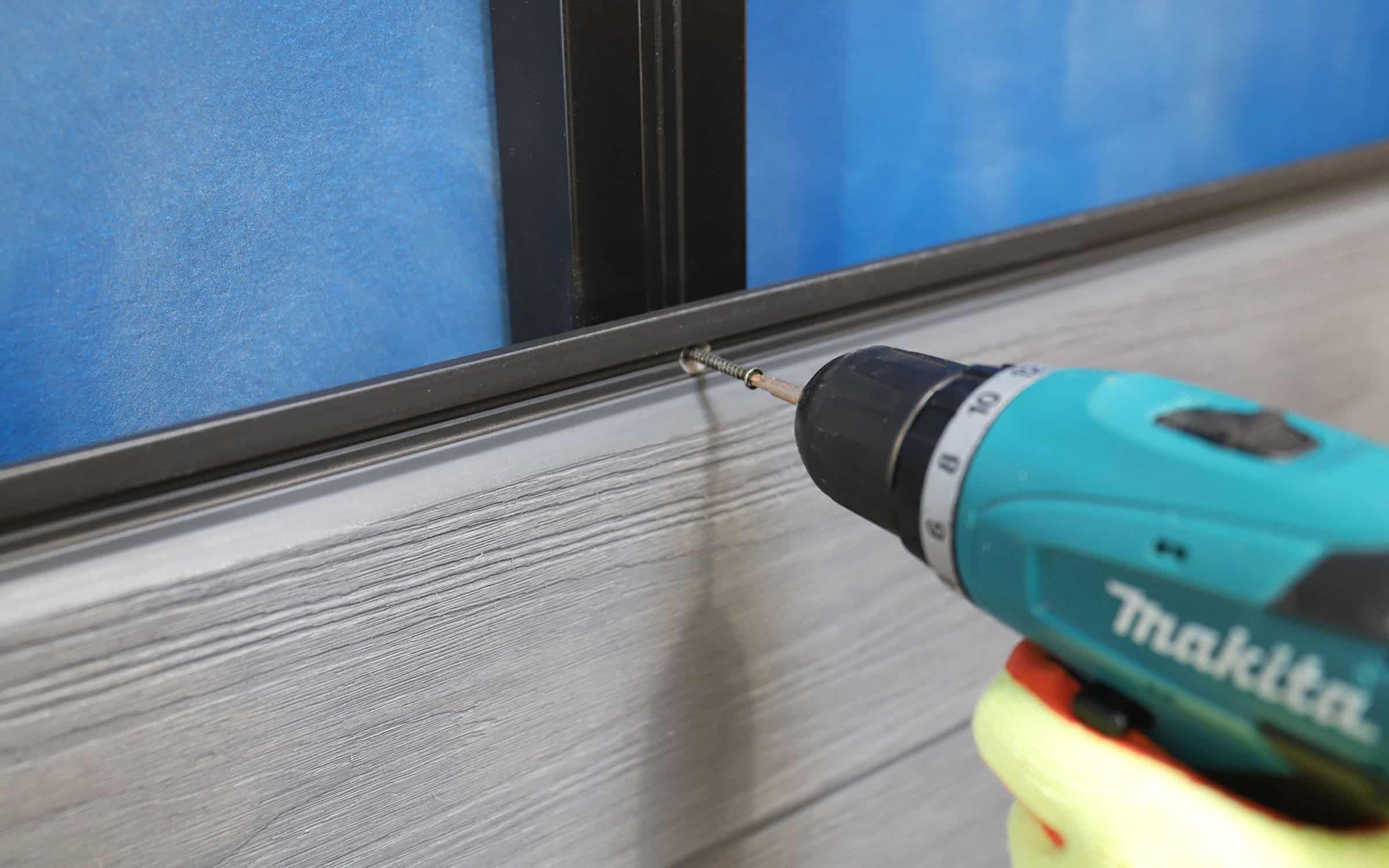Is composite cladding prone to warping and expanding?
Before we answer the question, ‘does composite cladding expand?’, let’s look at how it differs from wood. The trouble with timber cladding is that it’s made from wood! This means it absorbs water, which causes it to twist, warp, crack, and eventually rot. Even the best kept timber cladding will succumb to the elements sooner or later. And with the weather we have here in the UK, sooner is far more likely.

So, before you rush out and buy a timber alternative, you probably want to get some answers to your cladding questions. It’s only natural; composite cladding is relatively new, so you’re bound to be curious. Let’s start by breaking down one of our most frequently asked questions – does composite cladding expand and contract?
So, Does Composite Cladding Expand?
Like almost all materials, composite cladding does expand. But wait! Before you abandon it as an option, just know cladding is supposed to expand! In fact, we’ve specifically designed it to expand. When exposed to heat, materials like wood, plastic, and even steel expand. And, as they cool, they contract. Through a process of thermal expansion, the bottom deck of the “Golden Gate Bridge” in San Francisco has been seen to rise and fall by a difference of 16 feet between the hottest and coldest days. Similarly, care should be taken when installing your composite cladding to ensure you leave plenty of room for this expansion.

Why Does Composite Cladding Expand More Than Wood?
Composite cladding, like all composite materials, is made from a 60/40 split of wood fibres and plastic polymers. Wood expands and contracts to a lesser degree, but plastic is the key culprit for additional expansion. More sensitive to thermal changes, plastic causes composite cladding to expand and contract, but that isn’t a bad thing at all! In fact, we created our unique fixing system to compensate for this trait. That’s why we always recommend installing cladding boards with a gap when butting two pieces together – what gaps are left depends on the outside temperature at the time of installation. These gaps provide ample space for the boards to expand and contract as temperatures fluctuate.
How To Avoid Damage To Boards Through Expansion
Just like our decking, composite cladding expands and contracts to a greater degree than timber. So, we always recommend allowing boards to acclimatise initially. When accepting delivery, follow the cladding installation guide to gauge how far apart they should be installed, according to the temperature on the day of installation. In doing so, you’ll allow for appropriate expansion gaps at butting ends. This’ll give the boards the space they need to breathe, without knocking against other boards or pulling at the cladding screws. The aim of the game is to make sure your boards are as comfortable as possible; that way, they’ll last far longer than any other cladding alternative on the market.

Does Composite Cladding Warp, Crack Or Rot?
Because composite cladding is designed to expand and contract naturally, it is not vulnerable to the kind of damage that timber commonly sustains. Warping, cracking, and rotting don’t occur with composite cladding so long as installation is done right. Traditional composite cladding provides 99% protection against moisture damage, and second-generation capped composites offer even more. So, get experimenting! We’d be happy to help you find the right cladding for you, so get in touch today. Or, if you’re feeling confident, why not order some of our free samples to get a feel for what our products can do for you?
Need Further Support or Advice?
If you’ve still got questions that have not been answered here, or you would like additional advice,
support or assistance then please give one of our friendly experts a call and we’ll be happy to help.
Just give us a call on 01530 382 180.
